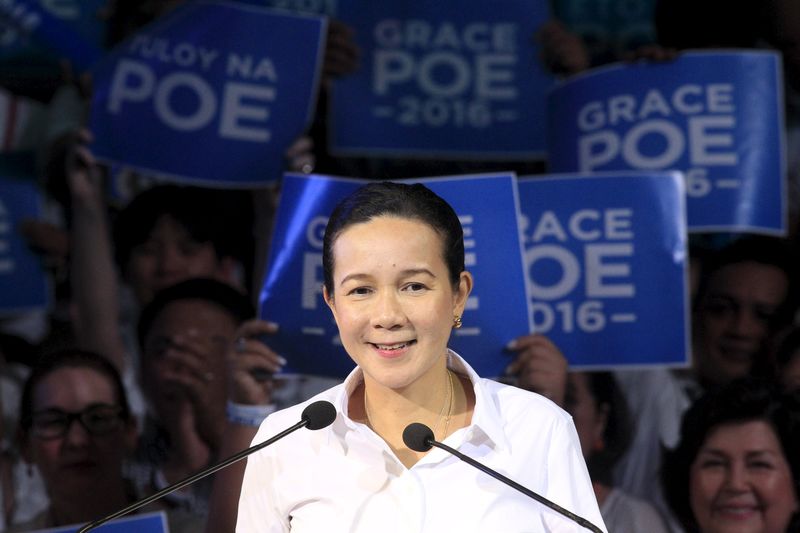MANILA (Reuters) - A novice senator who is the adopted daughter of a late popular movie action hero has increased her lead as the favourite to win the presidency of the Philippines at elections next year, an opinion poll showed on Monday.
Grace Poe, 47, who formally declared her candidacy last week for the elections in May 2016, was the top-rated candidate among 47 percent of correspondents, up by five points, the latest Social Weather Stations poll showed.
The elections will be closely watched by investors, who fear the political succession in one of Asia's fastest growing economies could derail gains made during President Benigno Aquino's rule.
Under Aquino, the Philippines has seen economic growth of more than 6 percent on average, its best 5-year record in four decades. He has also battled to rein in corruption.
About 54 million Filipinos will be eligible to vote to choose a president, vice president and more than 18,000 local government executives and lawmakers in the general elections, which happen every six years.
The third-quarter poll, published by the Businessworld newspaper, showed that Manuel Roxas, a former interior minister under Aquino, had jumped 18 points to surge into second place with 39 percent approval.
The 1,200 respondents were asked in early September - before Poe declared her candidacy - to make their top three choices to replace Aquino.
Roxas overtook Vice President Jejomar Binay, who was steady with 35 percent.
Political analysts say Roxas' sharp rise was largely due to his endorsement by Aquino in late July.
Ferdinand "Bongbong" Marcos, the only son of the late dictator Ferdinand Marcos who imposed martial law in the Philippines 43 years ago to the day, was well back in the field of potential candidates with 5 percent approval.
Poe, who shot to number one in June, has positioned herself as an alternative candidate to more traditional politicians like Roxas and Binay.

Even though she is a relative newcomer to the political scene, there is no reason to expect her to propose any drastic changes because she is surrounded by traditional politicians, said Ramon Casiple, executive director of the Institute for Political and Electoral Reforms.